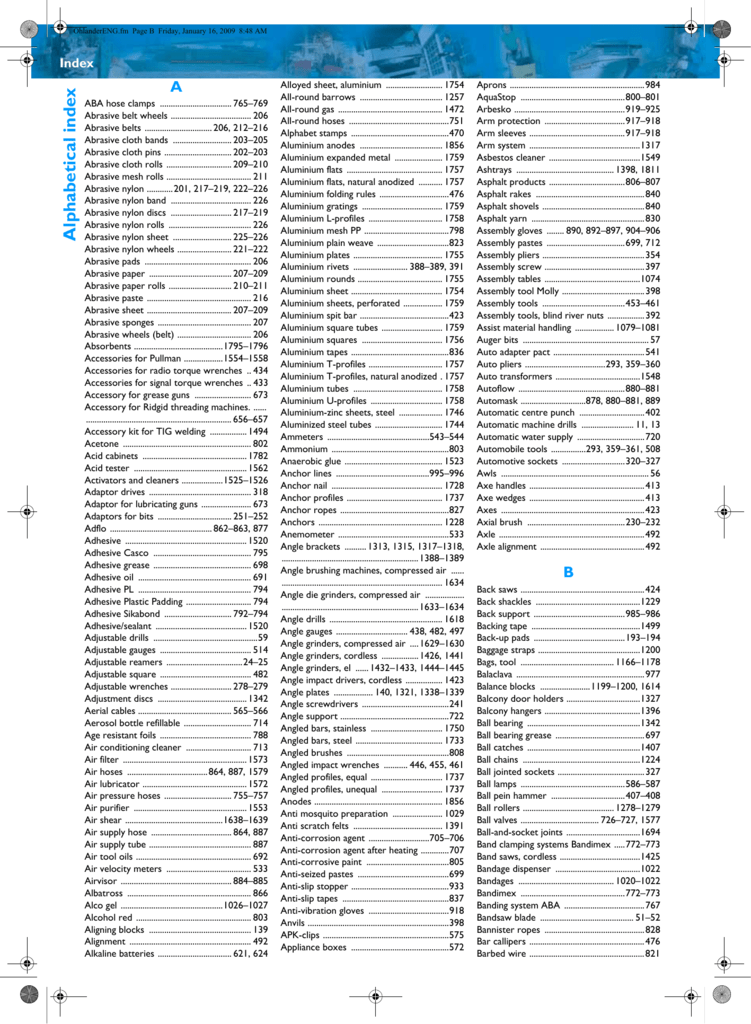
If your state or a private payer institutes such a requirement, it would be independent of ICD-10 implementation. You may have to provide these codes if you are subject to a state-based external cause code-reporting mandate or if a particular payer requires them. There is no national requirement to report the ICD-10 codes for "external causes for morbidity," which are found in the official guidelines. Do I have to provide external cause codes?
#ALPHABETIC INDEX AND TABULAR LIST ZIP FILE#
The ICD-10-CM and official ICD-10-CM guidelines are available on the CMS ICD-10 website page that links to, among other things, a ZIP file that contains the code table and index.īe sure that you are downloading the codes for the correct year that the services are provided. The same rules apply for hospital-based outpatient settings and private outpatient settings. The code sets apply to all non-outpatient settings, such as acute care, short-term care, long-term care, and psychiatric hospitals home health agencies rehab facilities and nursing homes.Īn additional section in the guidelines addresses outpatient settings. Are there different coding guidelines for inpatient and outpatient settings? Use the codes and the guidelines that correspond with the year in which you provide the service. The CDC updates these guidelines annually. It is supplemented by a set of official guidelines that are designated as part of the ICD-10-CM code set by the HIPAA "medical data code set" regulations. ICD-10-CM was developed and is maintained by the World Health Organization and the National Center for Health Statistics within the Centers for Disease Control and Prevention. How do I find the "official guidelines" for ICD-10? To be sure, check with each payer for details. If you had been providing ICD-9 codes, it is likely you need to use ICD-10 codes for processing your patients' out-of-network claims. In addition, there is value in the increased detail in ICD-10, and CMS will work with noncovered entities to use it.įor cash-based services, provide what your patients need to submit to their payers. This is because ICD-9 was no longer maintained after ICD-10 was implemented, and so it is in even a noncovered entity's best interest to use ICD-10. Insurers such as workers' compensation and auto insurers are not subject to HIPAA and were not required to switch, but most likely transitioned, anyway.

This includes Medicare, Medicaid, and most private insurance companies. Who Is Required to Use ICD-10Īll HIPAA-covered entities were required to transition to ICD-10 from ICD-9 in 2015.

The updated book typically includes new, revised, and deleted codes changes in descriptions, an index revision, which more than just to new codes and tabular revision with notes on “includes” and “excludes” and on additional code use. You can purchase hard copy books, and you can also access the index and tabular lists online for both years at no charge. When ordering, ensure that you are ordering a code book that is not in draft form. Unless there is a hold on updating ICD-10 codes, it is best practice to purchase a current ICD-10 book each year. Most online booksellers carry a printed version of the current ICD-10-CM codes. Providers must use the ICD-10 codes for inpatient discharges and outpatient encounters during the current financial year, which runs Oct. Using ICD-10 Do I have to purchase a new ICD-10 book every year?


 0 kommentar(er)
0 kommentar(er)
